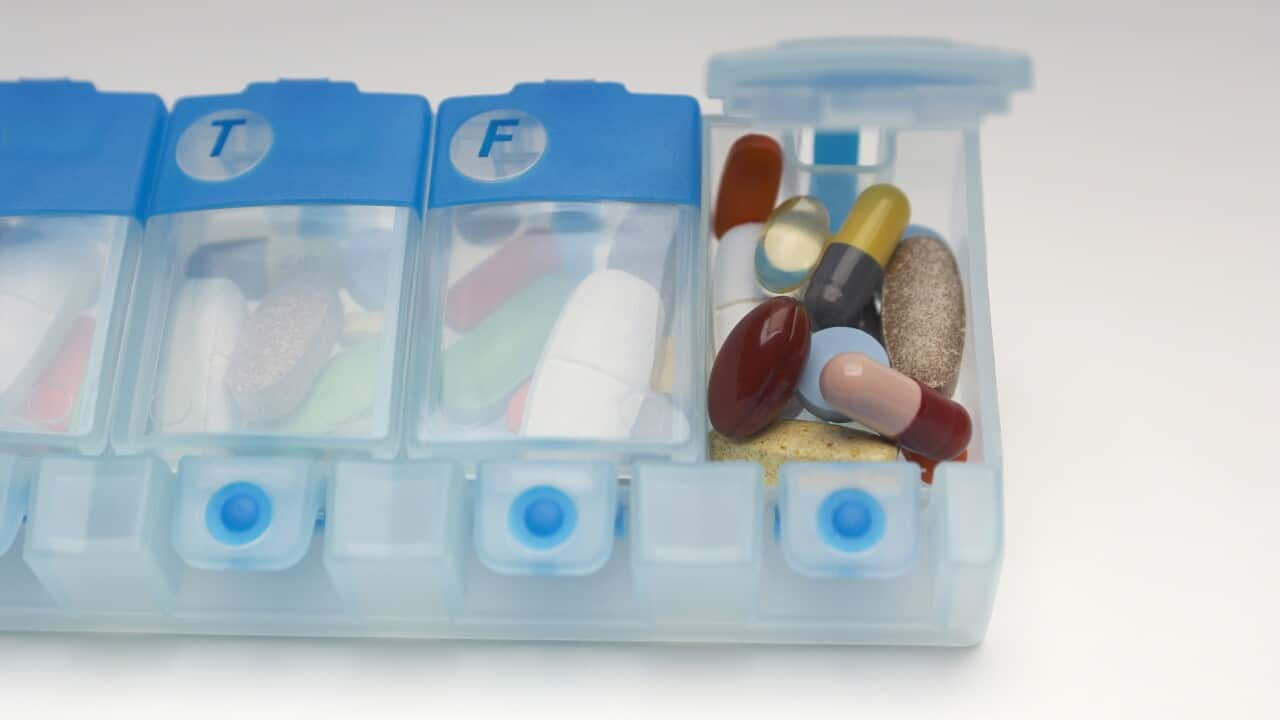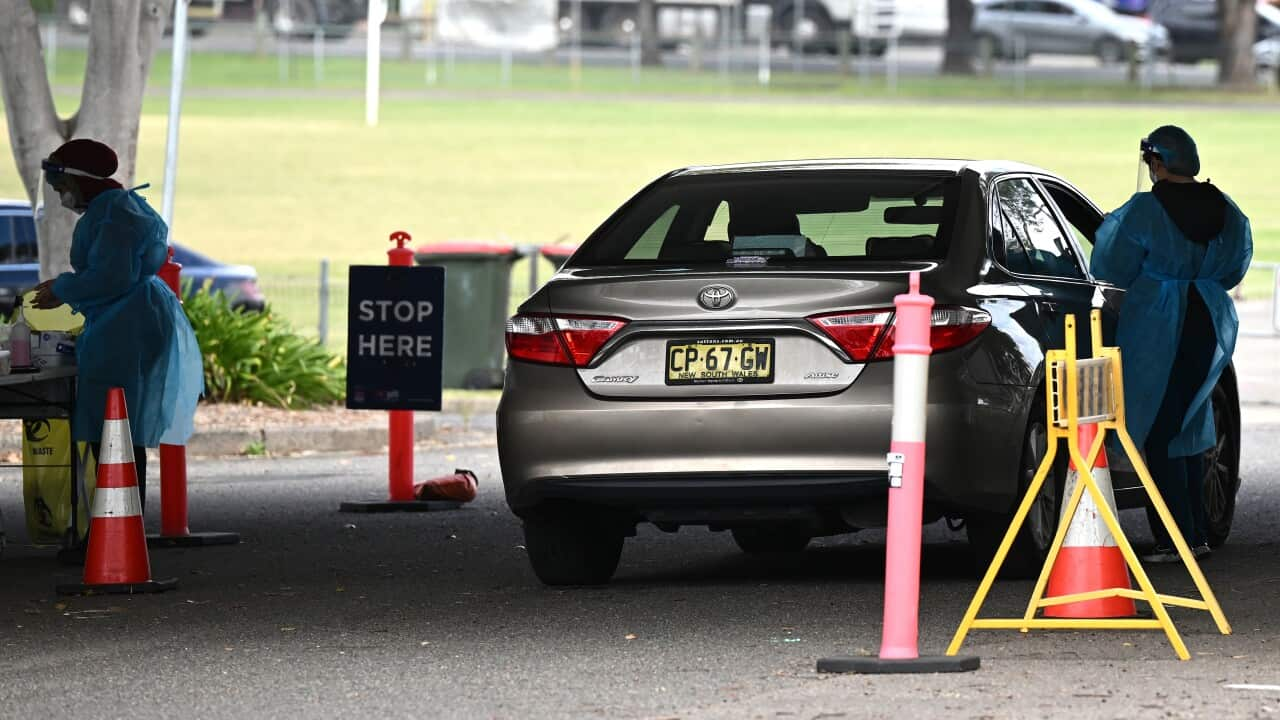Key Points
- The government plans to allow people to buy two months' worth of subsidised medicines on a single prescription.
- Hundreds of common medicines will become cheaper to access under the policy.
- The change, due to kick in on 1 September, is expected to deliver a budget saving.
Millions of Australians with chronic medical conditions will find it much cheaper to obtain medicines under a new measure to be included in next month's federal budget.
The government plans to allow people to buy two months' worth of subsidised medicines on a single prescription, rather than two separate prescriptions.
This means about six million Australians will pay less for their medicines and spend less time travelling back and forth to the doctor and pharmacy.
The change, due to kick in on 1 September, is expected to deliver a budget saving, with patients needing fewer visits to the GP to get the common medicines they need.
The fiscal impact will be revealed in the budget to be handed down by Treasurer Jim Chalmers on 9 May.
Hundreds of common medicines will become cheaper to access under the policy, which is largely aimed at those with chronic conditions who spend a lot on medication.

The fiscal impact of making hundreds of medicines cheaper for millions of Australians will be revealed in the budget to be handed down by Treasurer Jim Chalmers on 9 May. Source: AAP / Jono Searle
People could save up to $180 a year, if their medicine can be prescribed for 60 days rather than 30, or more if their other medicines qualify for the extended dispensing change.
The Pharmaceutical Benefits Advisory Committee first floated the idea in 2018 when it investigated the clinical safety of allowing select PBS medicines for chronic conditions to be dispensed in bigger quantities.
The committee recommended lifting script refills from one month's supply to two months' supply per dispensing for common medicines.
But even with the change, Australia's medicine dispensing rules are still less flexible than other comparable nations, with New Zealand allowing a 90-day supply for chronic conditions and Canada 100 days.
Medicine shortage concerns
However, Pharmacy Guild of Australia president Trent Twomey said the changes could lead to further medicine shortages for patients.
"I'm all for cost-of-living relief and a cost-of-living measure, but this, unfortunately, is just smoke and mirrors," he told ABC TV on Wednesday.
"If you don't have the medicine in stock, how do you give double nothing? Double nothing is still nothing."
Mr Twomey said there were more than 470 medicines in the country that already had critical shortages or were completely unavailable.
Mr Twomey said 40 per cent of the medications on the list were experiencing shortages.
"The government needs to stop worrying about a glossy announcement this morning about a pre-budget promise about how we're going to help with the cost of living," he said.
"It needs to get the basics right first, which is making sure that everyone can get at least one box."
Health Minister Mark Butler said the cost of living measure would address the issue of Australians delaying or going without medicines they need.
"Every year, nearly a million Australians are forced to delay or go without a medicine that their doctor has told them is necessary for their health," he said.
"This cheaper medicines policy is safe, good for Australians' hip pockets and most importantly good for their health."
Doctors will still be able to choose to write a prescription for a one-month supply for patients, rather than two.
The government says the change won't drive up demand for medicine or add to shortages.
"We are calling on the federal government to reconsider," guild national president Trent Twomey said, adding the better option was to lower the PBS co-payment to $19, from $30.
Meanwhile, just weeks out from the Albanese government's second budget, shadow treasurer Angus Taylor has called on Dr Chalmers to lay down a path to bring the budget back to surplus.
The government should bank an expected commodity and income tax windfall and use it to lower the deficit, he said.
"If the government can't deliver a strong surplus with the current strong commodity prices and the strong economy left to it by the coalition, when will it ever deliver a surplus?"
Dr Chalmers has committed to absorbing most of the revenue bump from high commodity prices, but not to delivering a surplus.




